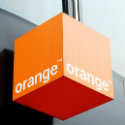
Also in today's EMEA regional roundup: Italy's cool with Huawei, but former Aussie spy isn't; Telefónica launches new unit for smoother sales processes; Tele2 gets nod for Croatian sale.
It's enough to warm the cockles of Donald Trump's heart, assuming he has one: Orange France has resisted the allure of Huawei and, after several months of testing, gone with Nokia and Ericsson for the guts of its 5G rollout. The Nokia bit is focused on the West and South-East regions of France, where Nokia already supplies 2G/3G/4G on the mobile network, while Ericsson will be working in the Ile de France, North-East and South-West regions, where it already has skin in Orange's RAN game. The awards are not surprising and had been anticipated by Light Reading: Orange already uses Ericsson and Nokia as mobile infrastructure suppliers and has indicated it will not use kit in the French market that has been developed by Chinese competitors. (See Ericsson, Nokia at front of queue for Orange 5G contracts.)
Orange France may be happy giving Huawei a wide berth, but Italy has no problem with the Chinese vendor, at least according to a junior government minister quoted by Reuters. Industry Undersecretary Mirella Liuzzi said, "Italy must first of all protect its national interests … without being naive, with the necessary precautions but without keeping anyone out on the doorstep."
But, on the other hand… an Australian former spy reckons the UK has done the wrong thing by allowing Huawei to play even a minor role in its 5G rollout. As the Guardian reports, Simeon Gilding, a director of the Australian Signals Directorate until December, said that Australia's intelligence agency failed to devise cybersecurity measures that could stop the Chinese government using Huawei as its metaphorical foot in the (back)door. Earlier this week UK officials announced a 5G fudge whereby Huawei was allowed into to its networks as long as it stayed below 35% in terms of market share, traffic volumes and basestation sites. (See Tough UK limits on Huawei's role in 5G threaten telco plans.)
Telefónica has set up a new unit, its Chief Digital Consumer Office (CDCO), which will be charged with improving sales processes and customer relations, as well as driving innovation in new products and services. Chema Alonso, as chief digital consumer officer, will head the unit.
The Croatian Competition Agency has given the green light to the sale of Tele2 Croatia to United Group. A formal approval is expected to be published in the coming weeks.
The European Parliament is calling for binding rules on mobile phone chargers to be tabled by the summer. It believes that the adoption of a common charger -- to replace the current mish-mash -- would massively decrease the amount of "e-waste" generated in Europe, which at the moment stands at 16.6 kilos a year on average per inhabitant, according to the EU.
In related matters, Proximus is challenging its native Belgium to collect 100,000 old, unused mobile phones in 2020 for either recycling or reuse. Proximus is teaming up with recycling specialist Umicore for the project, dubbed "Don't Miss the Call."
UK altnet CityFibre has joined forces with the city authorities in Edinburgh, the Scottish capital, to challenge the city's primary and secondary school students to come up with creative ways of using new technologies to tackle local issues and help make Edinburgh a smart city. CityFibre is currently working on a city-wide full-fiber network in Edinburgh.
— Paul Rainford, Assistant Editor, Europe, Light Reading
About the Author(s)
You May Also Like




_International_Software_Products.jpeg?width=300&auto=webp&quality=80&disable=upscale)







